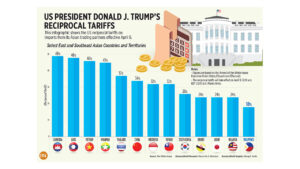Despite driving jobs and GDP, MSMEs get a fraction of bank lending, study finds

A new report by Foxmont Capital Partners and Boston Consulting Group (BCG) highlights a stark mismatch between the economic importance of micro, small, and medium enterprises (MSMEs) in the Philippines and their access to formal financing, with the sector receiving just a fraction of the country’s total bank loans.
MSMEs comprise 99.6% of all businesses in the Philippines, generate 67% of total employment, and contribute up to 40% of national gross domestic product (GDP). Despite this, they account for only 4.1% of total bank lending as of 2023, a sharp decline from the recorded 8% in 2010, according to the study. This decline comes despite continued growth in overall bank lending during the same period.
Under Republic Act 9501 or the Philippine Magna Carta for MSMEs, banks are required to allocate at least 10% of their loan portfolios to MSMEs — 8% for micro and small enterprises, and 2% for medium enterprises. Yet recent figures show that the banking sector remains far short of this mandate.
The total amount of loans extended to MSMEs in 2023 was just over $9 billion, less than half of the mandated minimum and far below the estimated $221-billion funding gap for the sector.
The Foxmont-BCG study also drew attention to structural barriers that continue to hinder MSME access to credit. On the supply side, banks tend to favor corporate clients, viewing smaller enterprises as higher risk or less profitable. Meanwhile, demand-side constraints persist, with many MSME owners hesitant to borrow due to mistrust of formal financial systems or a lack of suitable loan products tailored to their cash flow realities.
The report cites 2017 data from the World Bank and International Finance Corp. identifying the Philippines as having the largest MSME funding gap relative to GDP among 128 countries surveyed. Compared to regional peers such as Thailand, Indonesia, and Malaysia, the country continues to underperform in providing financing to small businesses.
Additionally, over 90% of assets are held by just 20 large banks, while more than 1,800 smaller institutions, that serve in rural areas, collectively control only 9% of total assets. Although rural banks are often the first point of contact for MSMEs and enjoy a high level of trust and proximity, they typically lack the capital and infrastructure to meet growing credit demands.
The report suggests that digital transformation will be crucial in closing the gap. MSMEs value branch proximity, customer service, and trust, but the best-performing banks in this segment also offer seamless digital experiences. Bridging the divide will require more adaptable loan structures, tailored financial products, and a stronger push for inclusive digital banking solutions.
SparkUp is BusinessWorld’s multimedia brand created to inform, inspire, and empower the Philippine startups; micro, small and medium enterprises (MSMEs); and future business leaders. This section will be published every other Monday. For pitches and releases about startups, e-mail to bmbeltran@bworldonline.com (cc: abconoza@bworldonline.com). Materials sent become BW property.




